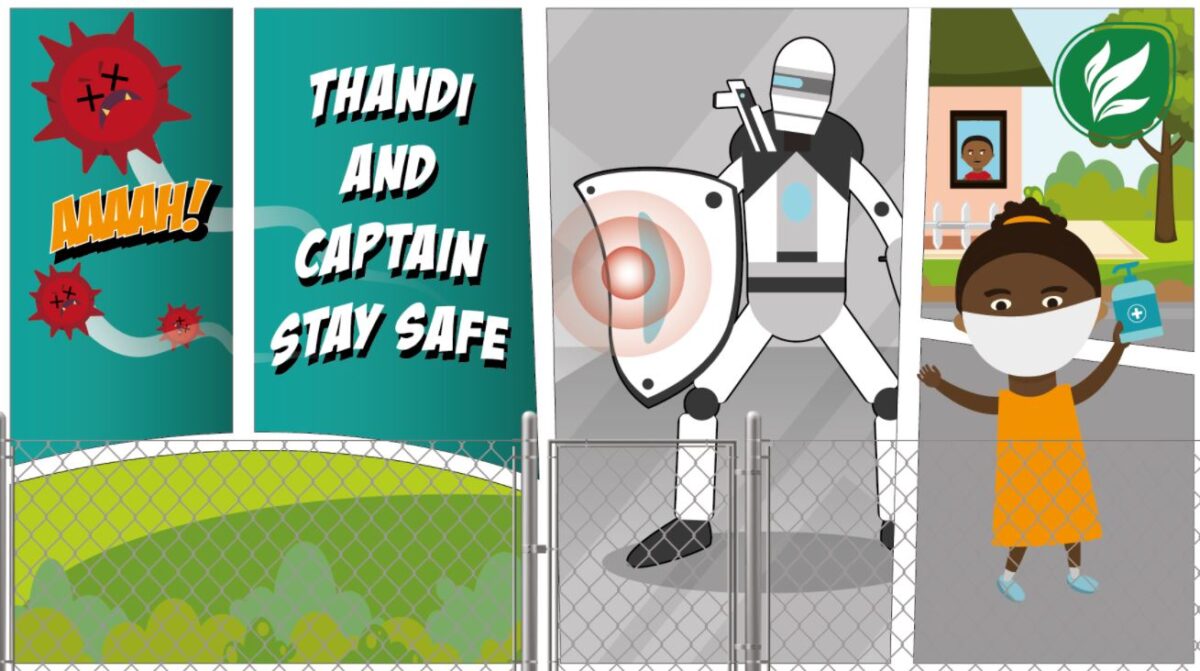By Kathryn Cleary
When the COVID-19 pandemic hit South Africa, like many African countries, cities quickly became ghost towns but information about the virus was slow to reach rural areas. However, addressing this information gap was nothing new for Food for Mzansi, a South African based digital news organisation with a keen focus on rural and agricultural communities.
Founded in 2019, Food for Mzansi works to inform the often marginalised rural and agri-communities in the country, as well as highlight the many success stories and unsung heroes within the local agri-industry. But, filling the COVID-19 information gap proved to be a new challenge for the organisation.

“We were very concerned about the accounts we were hearing from rural areas, where people were still in denial and feeling untouchable. People in these communities, that are at particular risk because of underdeveloped healthcare infrastructure, were carrying on as if the disease was exclusively an urban thing that would never reach them. Farmers let us know that they were not seeing any social distancing, no masks, and hand sanitation is always difficult in these very poor areas,” says Food for Mzansi co-founder Kobus Louwrens.
It’s a bird, it’s a plane…it’s: Captain Stay Safe!
Some might say that the people in these rural areas needed a hero; someone to save them from misinformation, disinformation and the virus itself. With the Internews Information Saves Lives Rapid Response Fund, Food for Mzansi made this a reality. Not all heroes wear capes, and for Food for Mzansi’s very own Captain Stay Safe, the cape is switched for a robotic-looking mask, and powerful knowledge about COVID-19 that’s available in 11 of South Africa’s official languages.
Captain Stay Safe is one of the heroes in a comic strip, where he helps young Thandi and other children better understand the risks of COVID-19, and what you can do to protect yourself. Concerned about the reopening of schools, Food for Mzansi launched the comic strip as a way to better inform parents and learners about what returning to school could mean for them and their families, as well as support them, says Louwrens.
Captain Stay Safe and Thandi’s comics were both drawn and written by Louwrens’ 11 year-old son. The young cartoonist penned a series of comics called Battle of COVID-19, featuring these two new heros. Throughout 2020, the comics were distributed by community organisations in rural areas where there was no other information on COVID-19 safety in local languages.
Captain Stay Safe and Thandi also featured in Food for Mzansi news updates and podcasts.
“Food For Mzansi is very enthusiastic about the power of [podcasts], and having figured out how to do our weekly Farmer’s Inside Track podcast remotely using WhatsApp, we were keen to do a COVID pop-up podcast,” says Louwrens.
“The podcast became a team effort and was to a large extent driven by pent-up energy from the team cooped up in their isolated workspaces in [lockdown]. The journalists contributed interviews and everybody jumped at the chance to have some fun, voicing characters as amateur actors for the children’s story that starts off the podcast series.”
The response to the project was phenomenal, he says. “We’ve done interviews with media from all over the world, including Britain, Germany and New Zealand [and we] won the award for best COVID-19 project in the Africa Digital Awards 2020, presented by WAN-Ifra.”
How have you framed and created information on COVID-19 differently to better reach agricultural and rural communities?
The short answer, says Louwrens, is responding directly to the needs expressed by their audience. “We built this audience by maintaining that no success was insignificant and no story from these communities too small, and we maintained that focus in covering the pandemic.”
Specifically with Captain Stay Safe and Thandi, he says they simplified language to make the information accessible to kids as well as parents with lower education levels.
“People trust Food For Mzansi because we’ve consistently walked the talk of representing the underrepresented communities that form our audience, and we are only a [direct message], an email or a phone call away for people who feel we are letting them down or straying from our stated mission.” says Louwrens.